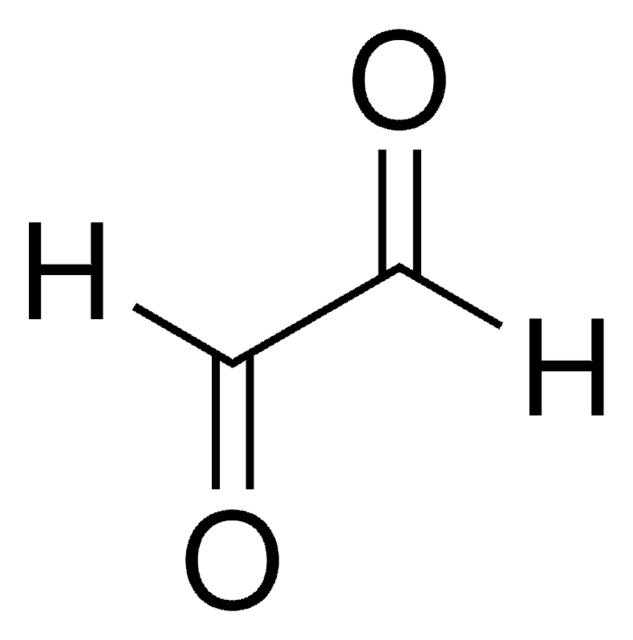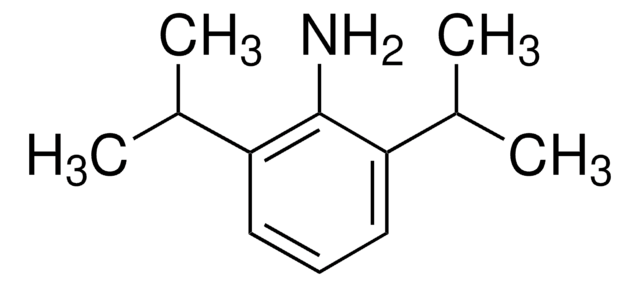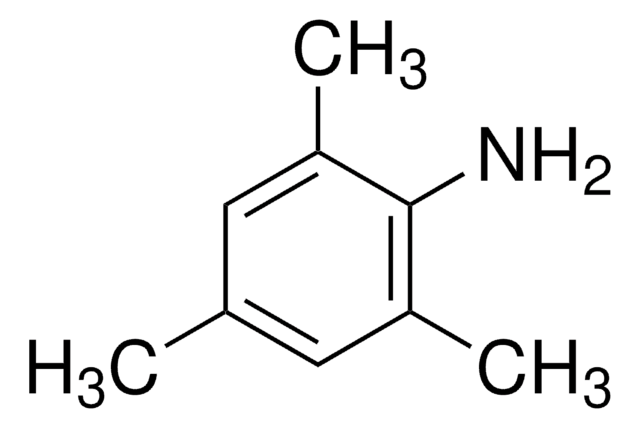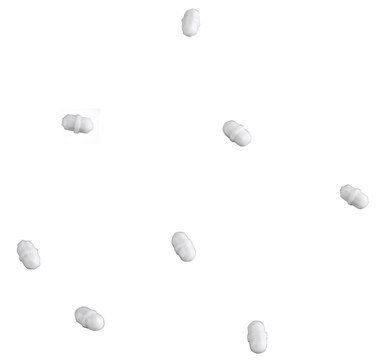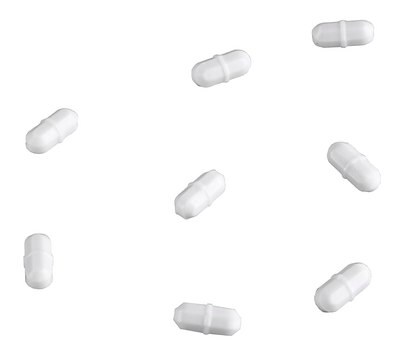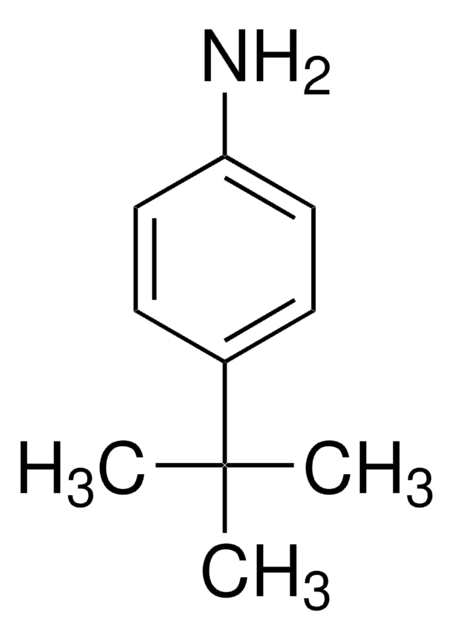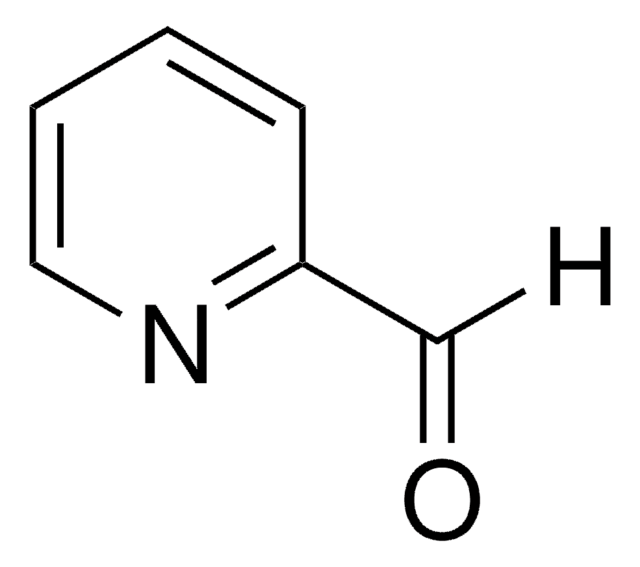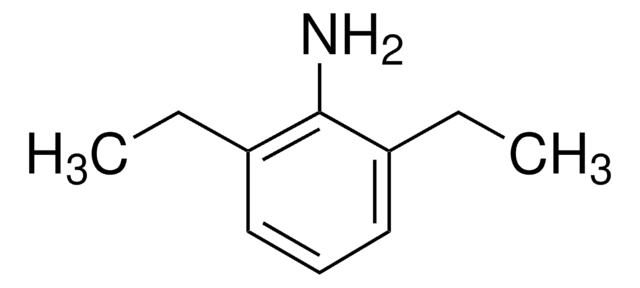Wichtige Dokumente
374733
2,6-Diisopropylanilin
97%
Synonym(e):
2,6-Bis(1-methylethyl)benzenamine, 2,6-Bis(propan-2-yl)aniline, 2,6-Diisopropylphenylamine
About This Item
Empfohlene Produkte
Dampfdruck
<0.01 mmHg ( 20 °C)
Assay
97%
Form
liquid
Brechungsindex
n20/D 1.532 (lit.)
bp
257 °C (lit.)
mp (Schmelzpunkt)
−45 °C (lit.)
Dichte
0.94 g/mL at 25 °C (lit.)
SMILES String
CC(C)c1cccc(C(C)C)c1N
InChI
1S/C12H19N/c1-8(2)10-6-5-7-11(9(3)4)12(10)13/h5-9H,13H2,1-4H3
InChIKey
WKBALTUBRZPIPZ-UHFFFAOYSA-N
Suchen Sie nach ähnlichen Produkten? Aufrufen Leitfaden zum Produktvergleich
Verwandte Kategorien
Allgemeine Beschreibung
2,6-Diisopropylaniline is an important organic intermediate widely used to synthesize plastics and dyes.
2,6-Diisopropylaniline is an important organic intermediate widely used to synthesize plastics and dyes.
Anwendung
Signalwort
Warning
H-Sätze
P-Sätze
Gefahreneinstufungen
Aquatic Chronic 3 - Eye Irrit. 2
Lagerklassenschlüssel
10 - Combustible liquids
WGK
WGK 2
Persönliche Schutzausrüstung
Eyeshields, Gloves
Hier finden Sie alle aktuellen Versionen:
Besitzen Sie dieses Produkt bereits?
In der Dokumentenbibliothek finden Sie die Dokumentation zu den Produkten, die Sie kürzlich erworben haben.
Kunden haben sich ebenfalls angesehen
Unser Team von Wissenschaftlern verfügt über Erfahrung in allen Forschungsbereichen einschließlich Life Science, Materialwissenschaften, chemischer Synthese, Chromatographie, Analytik und vielen mehr..
Setzen Sie sich mit dem technischen Dienst in Verbindung.